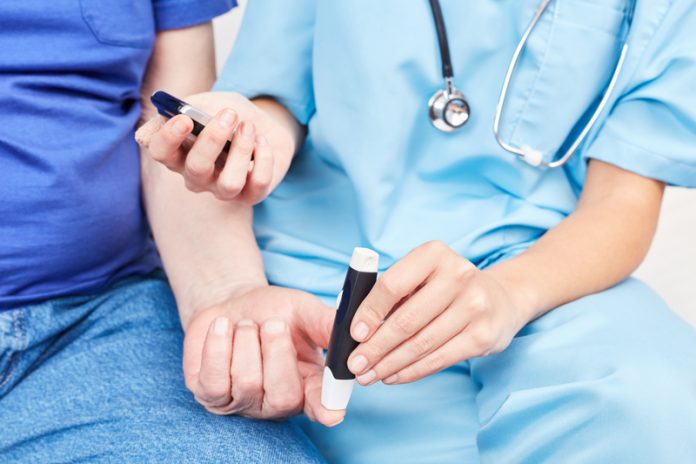John Grumitt, CEO of Changing Health and Chair of IDEAL Group highlights the importance of tackling the biggest challenges in diabetes care – together
With diabetes diagnoses rising rapidly across the UK, providing effective care for the nearly 4 million people who live with the condition is one of the biggest challenges facing our healthcare system.
To contain what could soon become a major national health crisis, the NHS has made vast investments in diabetes care; UK spending on the condition totals 10% of the total healthcare budget, amounting to some £10 billion per year. The majority – around 90% – of people with diabetes live with Type 2, and consequently, 80% of all diabetes care funding is consumed by treating complications which are largely avoidable.
Over the period spanning 2017-18 and 2018-19, an additional £80 million has been allocated to improving access to structured education on diabetes, providing more interventions to achieve better blood glucose, blood pressure and cholesterol levels, offering better access to multidisciplinary foot teams when necessary, and increasing access to diabetes specialist nurse support when in hospital (NHS Long Term Plan, 2019).
Equally important, is the Diabetes Prevention Programme (DPP), launched in 2016 and now available across 100% of England – the first such nationwide programme in the world. Over a quarter of a million people have already been referred to the DPP, with higher attendance rates among individuals from Asian, Afro-Caribbean and other ethnic groups, and equally high attendance among individuals from the most deprived compared to the least deprived communities – all of whom have historically been difficult groups to reach (Zeh et al, 2018).
Initiatives like the DPP show much promise and additional funding is, of course, welcome news. Yet consistency in standards of diabetes care processes and equal health outcomes, throughout the country, remain a goal, not a reality.
Diabetes prevalence in the UK can be anywhere between 6.5% and 11.5% depending on location – with communities with more socioeconomic challenges almost invariably seeing a higher prevalence of Type 2 diabetes.
Some areas, meanwhile, may have similarly sized diabetes populations but see very different numbers of hospital admissions for hypoglycemia and other complications, suggesting a postcode lottery also exists in individuals’ level of ability to self-manage their diabetes.
The iDEAL group, comprised of professionals with a wide range of backgrounds – from primary care and pharmacy to tech and academia, and bringing both personal and professional experience of diabetes to the table – was founded to review current NHS practice and recommend ways to reduce this variation.
We have identified four challenges to be addressed:
-
Introducing robust Key Performance Indicators (KPIs) for adult diabetes care
The NHS has seen considerable success in introducing KPIs for paediatric diabetes care. The Best Practice Tariff (BPT) for Diabetes was created in 2012-13 (and updated in 2017) and sets the standard of care required for every child or young person with diabetes under 19 years old.
Since the BPT was introduced, diabetes management among this group has improved for seven consecutive years. In 2011-12, only 17.4% of children and young people with diabetes had an HbA1c of <58 mmol/mol (<7.5%); by 2016-17 this figure had risen to 28.9%. The case, then, for introducing such a tariff for adult diabetes care is clear.
-
Providing and sharing models of best practice
One of the most effective ways to reduce variation in diabetes care processes may also be the simplest: sharing successes. Several CCGs have already developed models of excellence on increasing engagement with diabetes education and consequently, increasing the ability of people with diabetes to self-monitor their blood glucose accurately, at scale.
Sharing these models of excellence with other NHS organisations could drive a marked improvement in clinical, psychosocial and financial outcomes at very little if any, financial cost.
-
Increasing access, availability and uptake of structured diabetes education
Giving people with Type 2 diabetes the skills and the knowledge to manage their condition effectively is paramount to reducing the likelihood of complications. While 77.3% of people with Type 2 diabetes are referred to structured diabetes education, typically delivered in group-based classroom sessions, attendance rates have been a challenge.
Average uptake in England, according to the National Diabetes Audit, is just 7.4% – less than one in ten of those offered support. Clearly, a new approach is needed. The solution, as in many facets of life, may be found in our pockets: mobile health. Unlike classroom-based support, digital education on diabetes, delivered via a smartphone app, can be completed anytime, anywhere, removing a key barrier to access.
-
Optimising blood glucose management
Understanding how diet, stress, sleep and exercise impact on diabetes management can be the most valuable ‘tool in the box’ for people with Type 2 diabetes. Self-monitoring of blood glucose (SMBG) devices give users this understanding – yet only a minority of those who live with the condition are offered SMBG, and of those who are, the importance of understanding and making use of the data isn’t always made clear to them.
People with diabetes tend to report using SMBG so their health professional can advise them how to act on that information, but healthcare professionals tend to report prescribing SMBG as a tool to improve the individual’s own self-management. This suggests a gap in understanding and potentially, a lack of necessary support.
Crucially, SMBG devices commissioned by the NHS should be independently verified for quality and accuracy and prescribed alongside education and support to ensure each individual knows how to make use of SMBG technology.
Conclusion
Ultimately, delivering more effective diabetes care across the board can be achieved only one way: by bringing together all of the numerous stakeholders in diabetes care. That’s why the iDEAL group is engaging with NHS commissioners, primary care professionals, policymakers, advocacy groups, research bodies and others, to reach a consensus on enacting change.
The way forward is clear. We, that is, all of us involved in diabetes care, must share more of our knowledge, insights and experiences – CCGs with each other, frontline health professionals with patients, and groups like our own with our colleagues in the NHS and beyond – to better understand how we can help people with diabetes live longer, happier, healthier lives.
The iDEAL group is supported by an educational grant from Ascensia Diabetes Care. Follow us on Twitter @iDEALdiabetes or visit our website: http://idealdiabetes.com.
John Grumitt
CEO of Changing Health
Chair of IDEAL Group
Vice President of Diabetes UK,
Trustee of C3 Collaborating for Health











